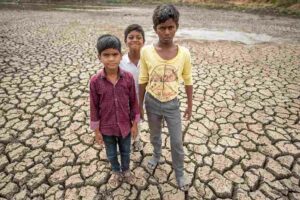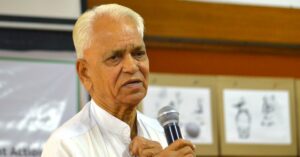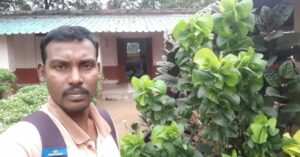Seeing My Cousins Suffer as Child Brides Pushed me to Help 6,500 Women Escape Same Fate
Founded in 2002, Shaheen in Old Hyderabad city is the brainchild of Jameela Nishat. They have provided legal, financial and emotional support to domestic violence survivors, enrolled students back into schools, provided vocational training to women and stopped child marriages.
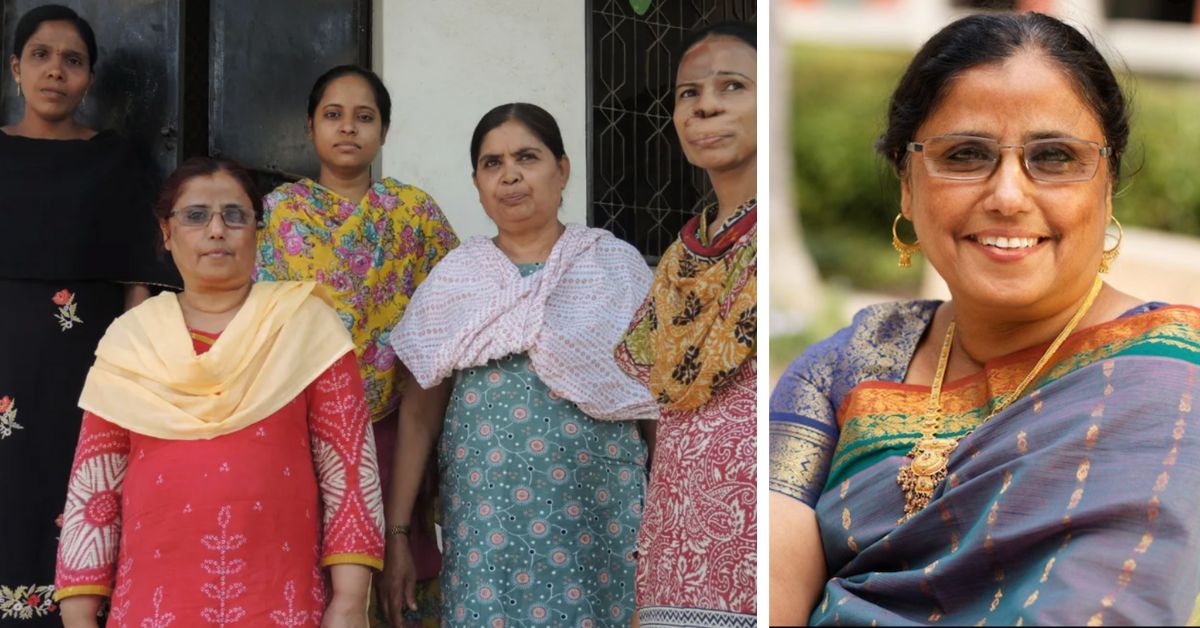
Trigger warning: This story contains mentions of abuse, domestic violence
At the age of 17, Sultana was married off to Mohammed Sayeeduddin, who was almost 15 years older than her. From the time she was married, she faced not just physical abuse, but also immense emotional trauma. She was asked to jump off a bridge and was threatened with acid.
There was a time when Mohammed was so infuriated with Sultana for stepping out of the house and working that he cut off her nose and lips. “I was pregnant when he did that to me. When I woke up 20 days later from a comatose state, I found myself with two holes in my face to call a nose, no lips, and a baby who was handed to me,” she recalls.
What followed was nothing short of harrowing for Sultana.
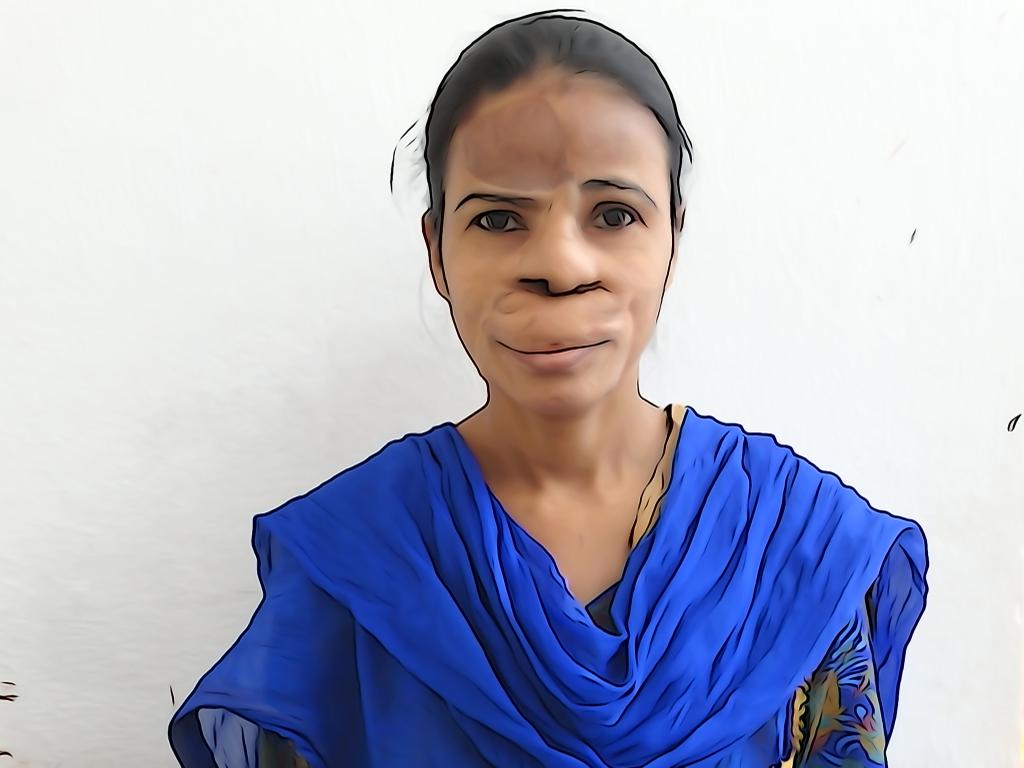
Photo Courtesy: Jameela Nishat
Today, 24 years later, she is able to look back and see just how far she has come in life.
In 1999, Sultana found the courage to live on because of the support extended by Jameela Nishat, founder of Shaheen Women’s Resource and Welfare Association, or simply, Shaheen. The organisation, based in Old Hyderabad, works to empower and transform the lives of marginalised women and victims of domestic violence.
Sultana is one of the oldest serving volunteers of the collective, which has provided legal, financial and emotional support to over 6,500 domestic violence survivors, enrolled over 4,500 students back into schools, provided vocational training to over 14,000 women, and stopped over 950 child marriages.
Like a bird soaring high
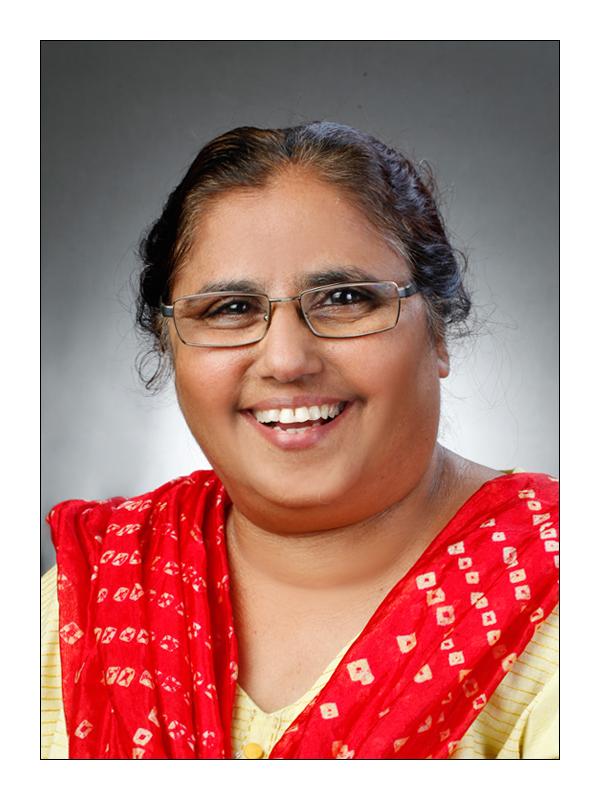
Photo Courtesy: Jameela Nishat
The name Shaheen means ‘royal white falcon’.
Jameela (67) tells The Better India, “While the work at Shaheen started in the late 90s it was only in 2002 that we formally registered this organisation.”
Even though Jameela was born into what would be considered a progressive middle-class Muslim household in Hyderabad, several unspoken restrictions were placed on her while growing up.
“My father was an artist, whose friends’ circle included artists like M F Hussain and Kaifi Azmi. While I was encouraged to study, I was sent to a regular government school while the boys in the family were sent to convents. Similarly, despite having a very strong desire to be a painter like my father, that was never encouraged. Not being able to paint steered me into becoming a poet, just as a means of expressing my feelings and desires,” she adds.
In 1975, Jameela was married. She says, “I grew up seeing my elder sisters be submissive and tick all the boxes that one was supposed to be like. I, on the other hand, was different and that was never stifled. I was allowed to be different. Besides not being able to paint, there were no restrictions on whom I spoke to, what I chose to do and the poetry I wrote.”
She started her career as a teacher in a school for disabled children. Later, nearing the new millennium, she decided to help women in distress because of something she witnessed as a child.
The journey has not been an easy one, given that early on, both men and women opposed the work she was embarking on with equal fervour. What has remained unwavering through it all is Jameela’s conviction and desire to bring about a change.
Opposition not just from men but also women
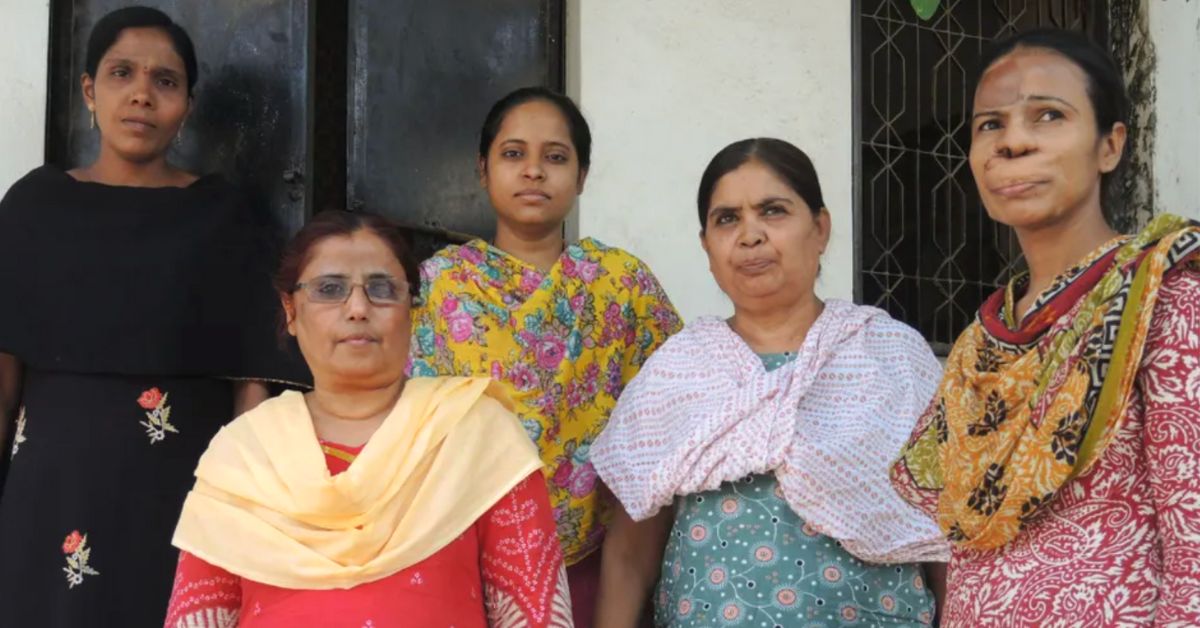
Photo Courtesy: Jameela Nishat
“In the ’70s, I saw cousins my age being married off to older Arabs,” says Jameela. “This troubled me. None of them said anything against this practice. In fact, there was a proposal that came for me when I was just in class 9 from a banker from Saudi Arabia. My father was very keen on the alliance, thinking that the money would keep me happy. It was my mother who put her foot down and resisted it at all costs.”
Jameela says her mother stopped eating for almost 15 days in protest and refused to speak to her father if he decided to go ahead with the wedding. It was because of her mother that she was able to fight the proposal. “It is her blood that runs through me even now,” she says with a smile of gratitude.
But the inability to fight and save her own cousins from marriages of convenience irked Jameela. “It bothered me that I could not do anything for them. Therefore, when I got the chance to work for women who were distressed and from weaker sections of society, I jumped at it,” she says. The sad part was that Jameela’s fight was not just against the misogynistic men but so many women who pandered to a similar thought process.
She says, “Women would come up and tell me ‘woh mard hi kya jo aurat ko na mare (a man is not a man if he did not every once in a while, hit the woman)’.” It has taken an eternity, Jameela says, to fight these problematic notions.
“Women have been conditioned to believe that they will be hit, they are weaker, they need a man to look after them, etc.”
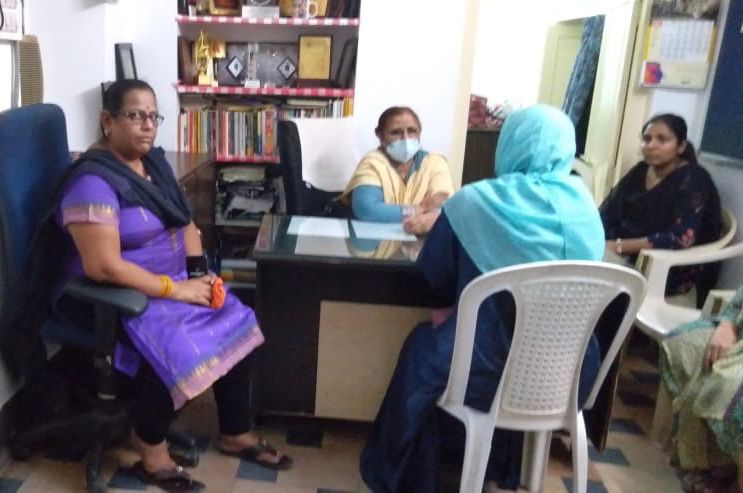
Photo Courtesy: Jameela Nishat
She says she has had to fight several fatwas (a legal decree on a point of Islamic law or opinion given by a high-ranking Islamic religious leader, religious authority or qualified council of scholars), long-standing conditioning and societal pressures to protect women.
In its nascent days, the organisation would often have to take on a different identity to survive. “We would call ourselves a women’s dispensary, a vocational training centre, a skill development centre, etc. This was so that women could come to this space without having to explain where and why they were going. While we also taught them sewing, mehendi application and eventually how to work a computer, the focus was on their mental health and well-being,” says Jameela.
‘We were birds with clipped wings.’
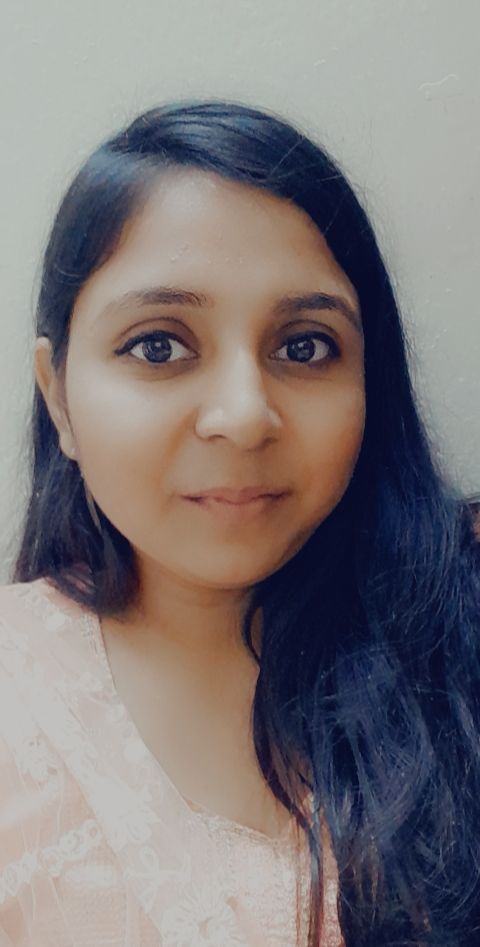
Photo Courtesy: Jameela Nishat
For each of the women who started visiting the collective, it became a safe space where they could sing, dance, talk, and just allow themselves to be without any fear. For 23-year-old Pooja Kagada, the collective was nothing short of a god-sent.
She also admits to having harboured suicidal thoughts. “It was only when I came to the collective to learn Mehendi application work and started talking to other women did I realise I was a victim of child sexual abuse. I grew up believing that all men were alike, that women were meant to only satiate men. I had no voice of my own and the socio-economic background I belonged to did not let me see otherwise,” says Pooja.
With the financial help from the collective, Pooja completed her education, and in 2016 joined them as a volunteer. Today, she is one of the champion leaders who help the collective in its mission of empowering women. She says, “It feels good to be able to help others. I know what it is like to suffer in silence.”
While Pooja was able to get the help and support to change her life around, Jameela also recalls many women who unfortunately lost their lives along the way. “I remember a 17-year-old who was allegedly killed by her husband. That disturbed me to no end. Despite running from pillar to post to get justice for the deceased, not one person from the community came forward to support us. They were all silenced, including the women.”
“It is such failures that push me to work harder and reach many more young women,” says Jameela.
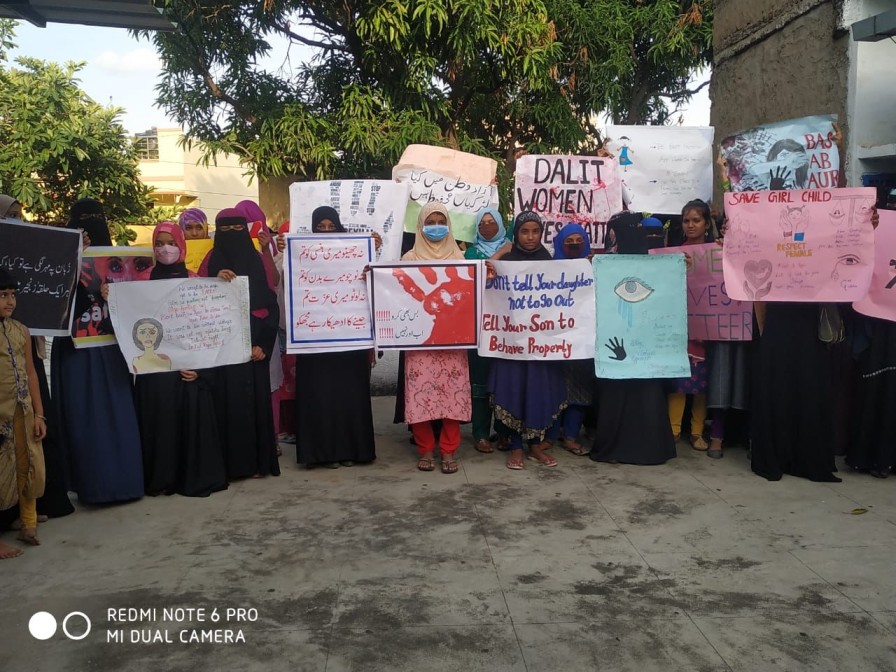
Photo Courtesy: Jameela Nishat
What started in Old Hyderebad’s Sultan Shaheed area has today, with the help of 19 volunteers, spread its wings to 25 slums with five dedicated centres for women to call home.
Despite having gone through severe physical and mental trauma, women like Sultana and Pooja can now provide support to other women and help them come out of abusive marriages, child marriages and even sexual abuse trauma.
Once caged and broken, each of these women today is soaring high, as the Shaheen falcon does.
To know more about the organisation and the work they do, click here.
(Edited by Yoshita Rao)
This story made me
-
97
-
121
-
89
-
167
Tell Us More
If you found our story insightful, informative, or even just enjoyable, we invite you to consider making a voluntary payment to support the work we do at The Better India. Your contribution helps us continue producing quality content that educates, inspires, and drives positive change.
Choose one of the payment options below for your contribution-
By paying for the stories you value, you directly contribute to sustaining our efforts focused on making a difference in the world. Together, let's ensure that impactful stories continue to be told and shared, enriching lives and communities alike.
Thank you for your support. Here are some frequently asked questions you might find helpful to know why you are contributing?






